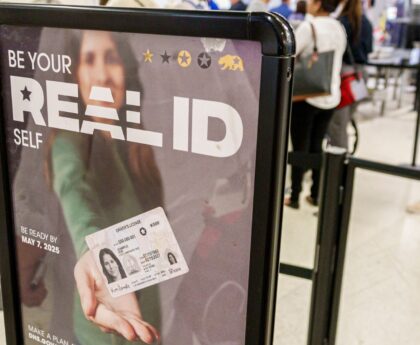
As greater numbers of a new generation begin to enter the pre-dawn hours of their middle age, it’s safe to assume that a cadre of journalists and experts representing Baby Boomers down to Millennials will come out of the woodwork to, at best, analyze and at worst, demonize their life choices. Spanning roughly 1997 to 2012, the oldest members of Gen Z are now well within the ranks of adulthood, and will presumably be painted with some of the same broadly derisive strokes that my generation, the Millennials, faced across the media landscape.
Case in point –– 49% of adult Gen Zers believe that planning for the future feels “pointless,” according to a recent poll by Credit Karma. At the same time, 58% of young adults surveyed by Intuit said that they are “integrating financial management into their overall wellness routines.”
So which is it? Are America’s youngest adults eschewing saving as an act of resistance, a silent protest against the volatile and unpredictable world they will soon inherit? Or have they successfully turned finances into a buzzy TikTok trend with real-world advantages?
In short, Gen Z –– like any other demographic –– is not a monolith. Despite what a single article might tell you, it’s pretty difficult to pin down, and attempting to qualify Gen Z’s savings habits this early in their adult lives could be a fool’s errand in the first place.
As Nate Hoskin, the founder and lead financial advisor for Hoskin Capital, put it, “Millennials were the Gen Z before Gen Z—a generation without savings or retirement plans. Then over time, they grew into one of the best savings generations we’ve ever seen, despite limited governmental support and fewer robust employment opportunities that earlier generations, like the Baby Boomers, benefited from.”
Nevertheless, that hasn’t stopped some experts from diagnosing Gen Z with an acute “YOLO mindset” –– a decidedly Millennial term that needs to be retired for good.
“There are a lot of financial implications in the long term if these young people aren’t planning for their financial future and [are] spending willy-nilly however they want,” Courtney Alev, a consumer financial advocate at Credit Karma, told CNBC.
However, a survey from the Teachers Insurance and Annuity Association of America (TIAA) found that 84% of Gen Z put a portion of their paycheck aside each month, while 57% say they follow a budget. That doesn’t necessarily sound like “spending willy-nilly” to me.
Essentially, it could be argued that Gen Z is saving for the future, just not in the traditional way that generations before them would recognize. And that’s to say nothing of the 58% of Americans who, regardless of age or generation, doubt they’ll ever be able to save enough for retirement.
What’s more, it’s much easier to stash money in a retirement account when you have more disposable income to diversify. In the same Intuit survey, 76% of respondents said cost of living contributes to their financial stress, as well as 48% citing job instability and 46% pointing to escalating housing expenses.
“This is a generation that’s weathered pandemic isolation during formative years, entered an unstable economy, and faced skyrocketing housing and education costs — all while being told they’re not resilient enough,” said John Della Volpe, director of polling at Harvard Kennedy School Institute of Politics. “What Gen Z needs isn’t another lecture, but genuine recognition of their struggles.”



